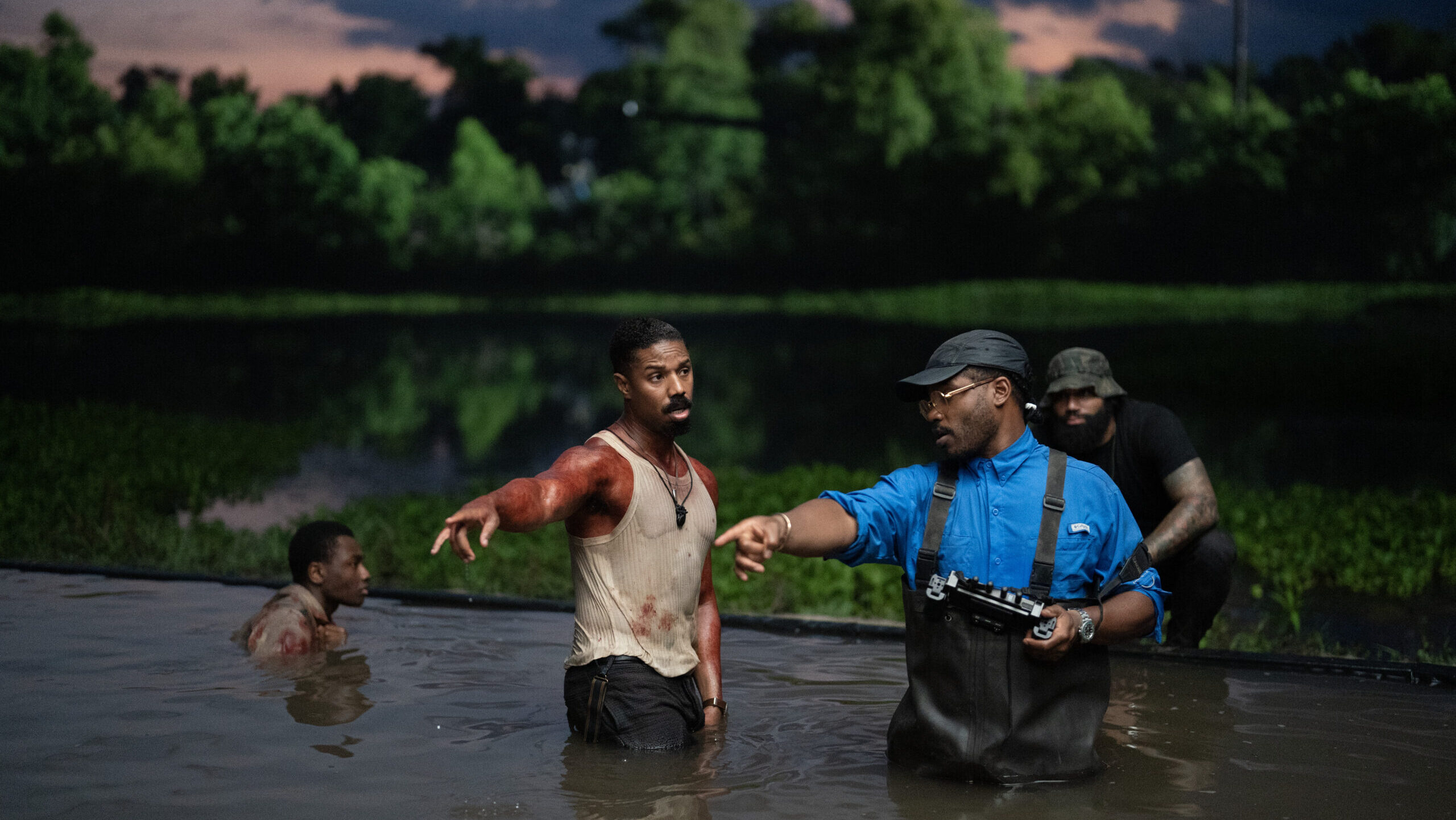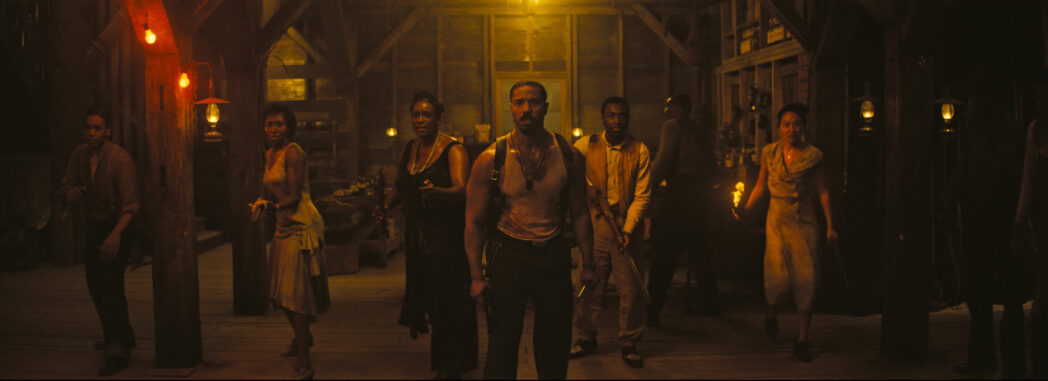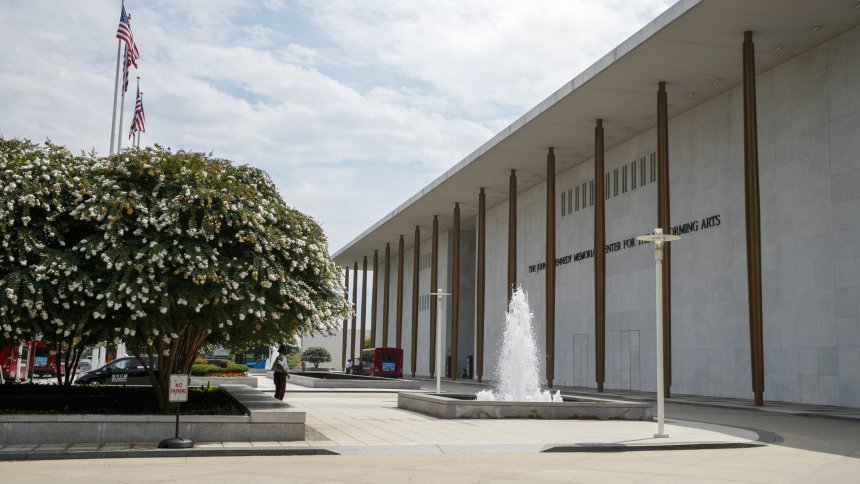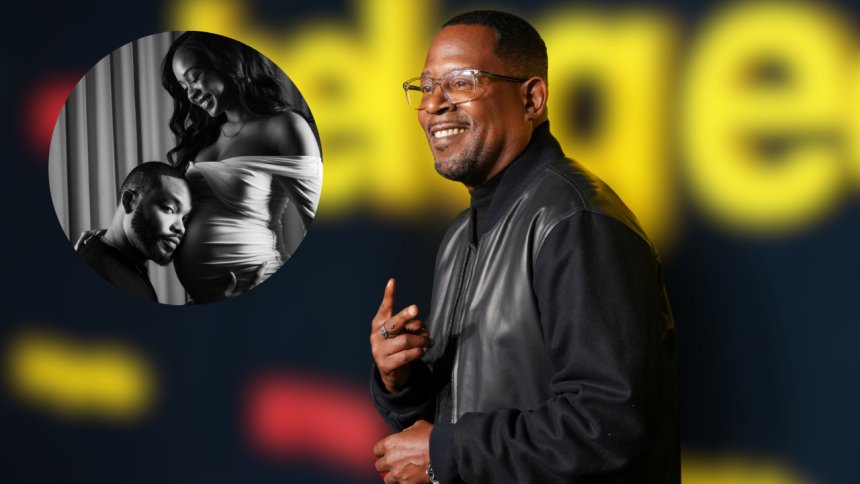Ryan Coogler talks the Delta Blues, spirituality and why his latest film is titled ‘Sinners’: ‘It’s a term of judgment, but it’s welcoming as well’
Beyond the vampires and sex appeal of Michael B. Jordan, Ryan Coogler’s “Sinners” spotlights spirituality, music and Black folklore. This […]

Beyond the vampires and sex appeal of Michael B. Jordan, Ryan Coogler’s “Sinners” spotlights spirituality, music and Black folklore.
This Good Friday, everyone is talking about the highly anticipated release of Ryan Coogler and Michael B. Jordan’s latest film, “Sinners.” Now, before you grab your Bible and start clutching your pearls at the thought of a horror movie with the title “Sinners,” hear me out.
The horror film, which chronicles what happens when vampires take over Clarksdale, Mississippi, in 1932, is filled with nuanced conversations about culture, religion, spirituality, and music. During a phone interview with Ryan Coogler, theGrio got a glimpse into the “Sinners” creator’s mind and how he managed to showcase the dissonant harmony of these themes.
“We ended up with ‘Sinners’ and in hindsight I think it’s the only title we ever could have,” Coogler told TheGrio, revealing that the film existed under the code name “Grilled Cheese” before getting its official title. “It has to do with that relationship that Delta Blues has with its kinda like twin sibling, gospel music.”
“Blues music was the first American music to be referenced as the devil’s music,” he continued. “That judgment of the practitioners of the music and folks who engage in the culture around it is at the heart of this movie. That conversation and acknowledgement that we all are [sinners] and if you point the finger at somebody calling them a sinner, you also have to point the finger back to yourself.”

For Coogler, who was raised in the Baptist church, attended a predominantly Black Catholic school growing up, and studied various religions throughout college, exploring the supernatural quality of Delta Blues music and the juxtaposition between spirituality and carnality through a diverse spiritual lens was important.
“[Religion] has always been something that has surrounded me in my life and a fascination of mine…people’s relationship with spirituality and it as a practice in which people choose to deal with the world,” he explained. “And it tends to be in my movies, too.”
In his fifth feature film, this fascination shows up through music–– a key part of the “Sinners” plot and creation. Inspired by his late Uncle James, who loved Delta Blues music, Coogler shared that he was inspired to make this film after studying the genre his uncle loved so much.
“Where gospel music is made for the soul, Delta Blues music is made for the soul and the body–it acknowledges the flesh and all of the beauty and ugliness that comes with it.”
“The artists were known for embracing their flaws, their nightmares, their mortality, and their carnal desires,” he continued. “Some of these songs talk about being haunted by crimes committed, by a lifestyle, by demons, the devil, or visions of an untimely death.”
Listening to artists like Robert Johnson, Howlin’ Wolf, and a playlist full of Delta Blues music, Coogler noticed how these themes evolved into modern-day genres like in Bone Thugs-N-Harmony’s “The Crossroads.”
“[I] realized that they’re not the first people to make a song called ‘Crossroads,’” he said, referring to his favorite ’90s rap songs. “That’s one of the most popular songs sung in the Delta Blues tradition, as a concept and [reference] to the entryway from the natural to the supernatural, life and death and crossing over.”
“All these things: the supernatural and my love of horror fiction made me think it would make sense to implement these elements into how these characters from [1932 Mississippi] encounter the supernatural,” he added.
Riddled with references to classic blues folklore (come back to these ideas after you’ve seen the film), “Sinners” ultimately highlights discussion themes seen throughout most religions and sociology: the battle between good and evil, spirit and flesh, etc.
“Even the most religious person would admit that they’re a sinner; everybody is,” Coogler noted. “It’s a term of judgment, but it’s also a term that’s welcoming as well. [In a] Christian context, that’s who Jesus spent the most time with.”
But ultimately, the director wants people to have a good time with the film.
“I wanted to make something that was entertaining and worked as a theatrical release. We filmed on IMAX cameras, the biggest format possible. We want people to be moved by what we have to say, we want people to talk at the screen and spill their popcorn during a jumpscare, and hopefully, that creates something that makes them think and want to come back for more.”
Share
What's Your Reaction?
 Like
0
Like
0
 Dislike
0
Dislike
0
 Love
0
Love
0
 Funny
0
Funny
0
 Angry
0
Angry
0
 Sad
0
Sad
0
 Wow
0
Wow
0
















